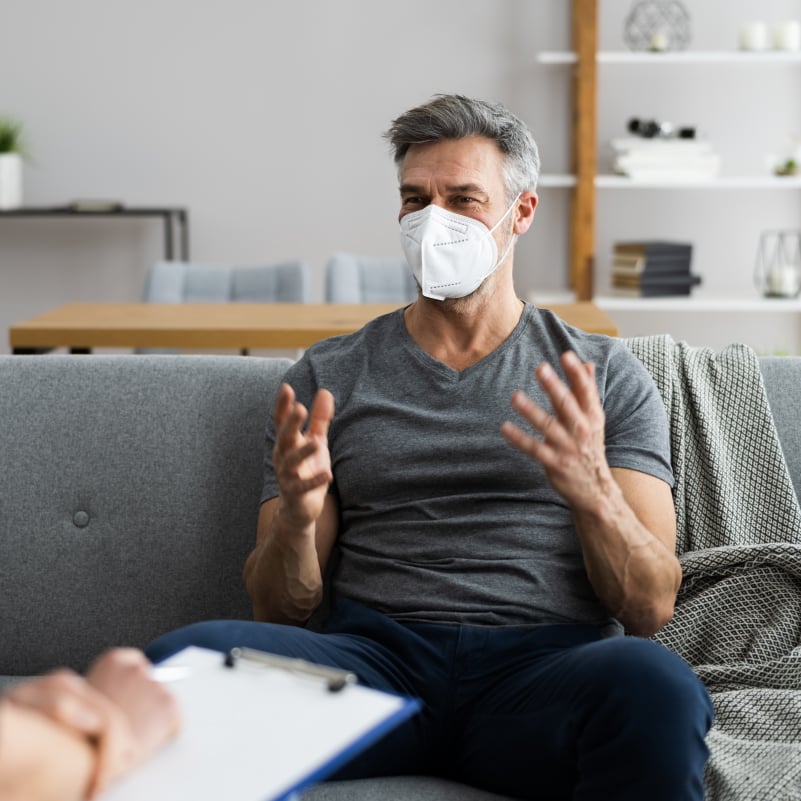When people talk about anxiety, the focus is usually on the fear and nervousness that arises when we are facing a challenging event or something unexpected.
However, not all anxiety is negative. Short instances of anxiety can serve a good purpose – helping us get things done in time for a deadline or help us face challenges.
But when anxiety is persistent to the point that it interferes with a person’s daily life, it is time to take action. Jennifer Maxa, LMSW, is the Program Manager at Genesee Mental Health PROS with Rochester Regional Health and shares seven ways to help lessen anxiety that interferes with daily life.
Techniques
1. Solo dance party: Movement is not something to be underestimated. Research shows a person moving their body in some form of exercise helps to reduce anxiety. Something as simple as dancing to a favorite song or walking outside in nature can be good for our mind and emotions.
2. Face the feeling: When we are feeling anxious or fearful, we might want to avoid doing a particular thing. This might help avoid anxiety in the moment, but it does not teach us how to manage the feeling. Rather than avoiding the situation, try to approach it gently rather than retreating from it.
3. Play Dungeons & Dragons: Okay, it doesn’t have to be Dungeons & Dragons, but finding a way to connect with others in-person makes a world of difference. Finding community through an organization, social group, or support group allows people to find others to talk with and trust. In time, people might feel more comfortable opening up about our anxiety.
4. Get some sleep: When our sleep suffers, our health suffers. Making a consistent sleep schedule a priority helps our body move from a stressful state into a more balanced one.
5. Ditch the phone: For some people, scrolling through social media and breaking news on their phone can induce anxiety – or add to it. If someone identifies this as a habit or behavior that triggers anxiety, try to cut back on it.
“Patients might use scrolling through their social media feeds as a way to wind down before going to bed,” Maxa said. “But sometimes, that can ramp up a person’s anxiety instead of slowing them down.”
6. Smell, listen, look: In the middle of feeling anxious, focusing on the experiences of the five senses can help ground a person to the present moment. By being conscious of what a person is hearing, feeling, seeing, etc., they can come back to the present and leave that anxious mindset behind.
7. Set boundaries…on yourself: In a 24/7 world, we need to give ourselves limits and boundaries to take breaks from activities or situations that induce anxiety. Showing ourselves some grace and compassion in the right moment can be helpful.
When to see a professional
For some people, the time might come when trying to self-manage their anxiety is not helping as well as it once did.
If anxious thoughts or behaviors are taking over a person’s life to the point where it is getting in the way of getting things done at home, taking care of their family and themselves personally, or affecting their work, this is an indication that it’s time to reach out to a professional.
Everyone has anxious moments; it’s part of life. But if those anxious moments are recurring multiple times a week for several months, talking with a professional is a good next step to take. Some behaviors or symptoms of anxiety might include:
- Panic attacks
- Shortness of breath
- Chest pains
- Upset stomach
People might think they can’t do anything about their anxiety or don’t have the ability to cope with it – but they are often emotionally stronger than they realize.
“Most people are already equipped with the mental and emotional tools in their toolbox to work through their anxiety, but aren’t aware of it,” Maxa said. “They need someone to talk them through it and have someone tell them how it all works, which is where a licensed therapist or counselor can be useful.”









